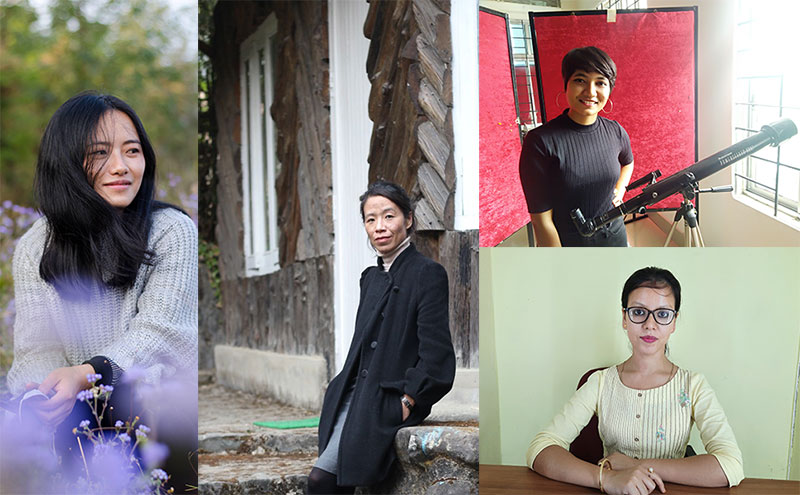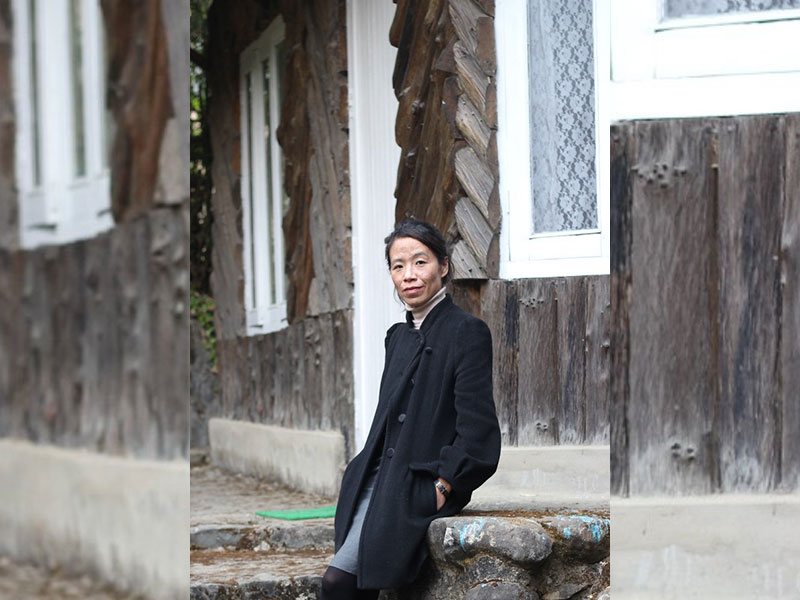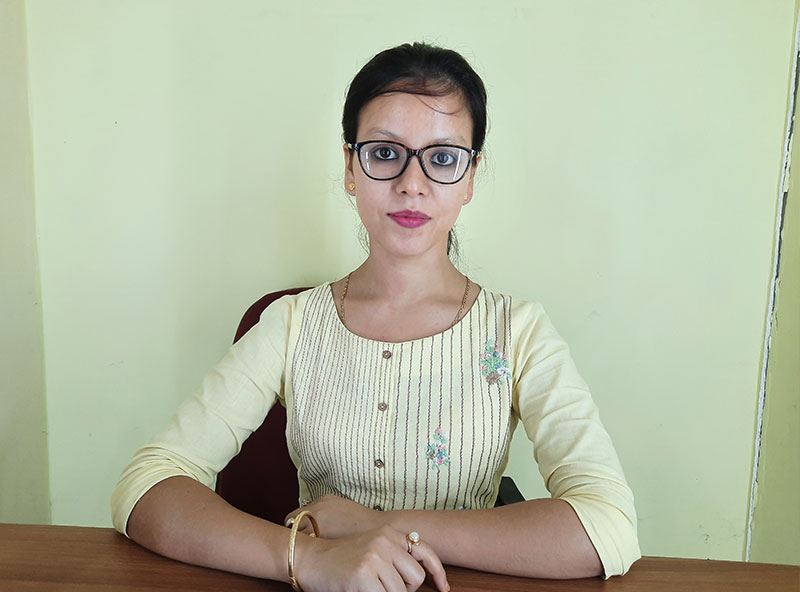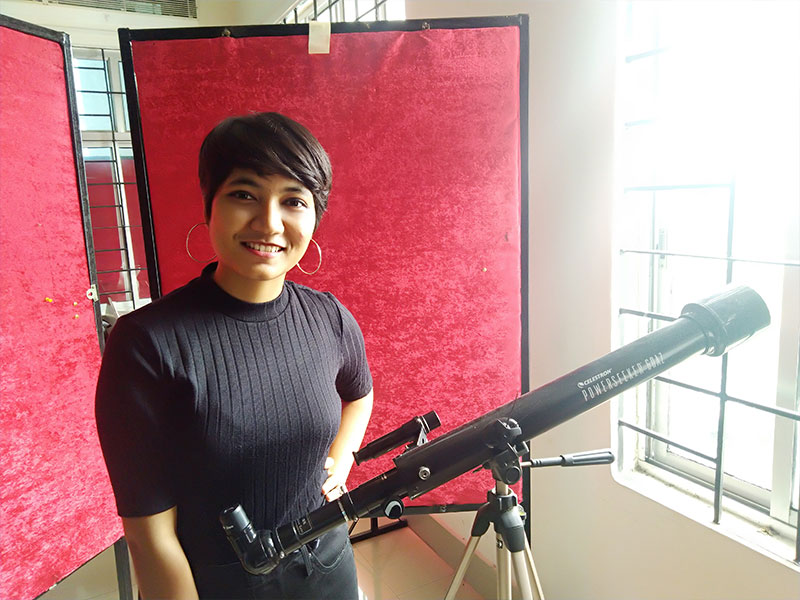 Women Entrepreneurs
Women Entrepreneurs
AWEsome entrepreneurs
The Academy for Women Entrepreneurs programme has helped women entrepreneurs in the Northeast to grow their ventures, raise capital and network with fellow business owners. Steve Fox reports
“Being part of the Academy for Women Entrepreneurs (AWE) program has filled all the gaps in my world of business,” says Vishu Rita Krocha, founder and owner of Penthrill Publication House, a Nagaland-based company that publishes books by local authors. “It has not always been easy—there have been times when I didn’t have enough money to print the next book title. But despite all the challenges, I wouldn’t trade this venture for anything else.”

Krocha is among 150 entrepreneurs enrolled in the AWE programme , an initiative by the State Department of the US, which operates in more than 50 countries to provide women entrepreneurs and early-stage business owners with the tools needed to create and grow their businesses, raise capital and network with other successful business owners.
Funded by the Bureau of Educational and Cultural Affairs of the Department, the Indian AWE program is administered through a partnership between the U.S. Consulate in Kolkata and Asian Confluence, a Meghalaya-based think tank. Using the DreamBuilder program, a 13-week online business course that covers planning, marketing, pricing, management, accounting, managing risk, funding, setting goals, and more, AWE teaches women entrepreneurs what it takes to transform their dreams into reality.
“I learned the process of writing a detailed business plan—what should be included in the plan, what are the factors that may affect the business, how to learn about competitors, how to do market surveys and how to grow the business,” says Daydeep Chetia, whose Assam-based organisation, ‘Let’s Learn Together’, aims to provide quality education to students who face a language barrier in their studies, especially those living in semi-urban and rural areas.

Like others in the AWE program, Chetia’s organisation was inspired by difficulties she experienced personally.
“Being a student of a vernacular medium school and living in a rural area where coaching facilities are not available, I faced many problems while preparing for competitive exams because their contents are available in English or Hindi but not in regional languages,” says Chetia. “Later, I realised there are many aspirants like me. This motivated me to start a platform to help students like me to prepare for competitive exams without any geographical boundary and language becoming a barrier.”
AWE, which operates in Nagaland, Meghalaya, Assam, Manipur and Arunachal Pradesh, helps women entrepreneurs in many different types of businesses.
“The business ideas that are part of the AWE program are from a wide range of sectors and themes including healthcare, mental health, hospitality, education, agri-horticulture, food and beverages, beauty and wellness, travel and tourism, textiles, waste management, tech startups, and handicrafts, among others,” says Prithviraj Nath, a senior fellow at Asian Confluence and lead coordinator for the AWE program in India.
Companies in the program range from two-person firms to enterprises that employ several hundred people seasonally, Nath explains.
“The candidates for the AWE India programme were chosen through an open call for ideas where women entrepreneurs from the five states were asked to share their innovative business ideas and future plans,” he says. “The candidates were scored on several parameters, including the innovativeness of the business idea, the impact the businesses can have in terms of economic empowerment, livelihood creation, and also whether there is a decided scope for technology intervention as part of the idea, among others. The candidates were then ranked based on their scores and 150 out of more than 250 were chosen.”

Technology developed by one company in the AWE program is focused on the coronavirus pandemic, says Pankhi Kashyap at the Defence and Space Robotics Laboratory in Assam.
“Initially, we were building quadruped robots to assist the frontline in battlefield and hostage situations, or in natural calamities,” she explains. “When the Covid pandemic happened, we put our research to work to develop measures to protect humans from microbial enemies and we came up with three products, well-tested and proven to deactivate the coronavirus within 30 seconds from any surface. The AWE program provided wonderful mentorship, understanding the weights a woman carries and gave the best hand-holding in creating a network.”

“The journey has been eye-opening and life-changing,” says Richon Kashung, owner of October Pumpkin Co., a small fragrance firm in Manipur. “AWE and the DreamBuilder programme have taught me things that my college education didn’t. After joining it, I know I can do so much more in order to give back to society.”
“Over the years we have had a long-standing relationship with some of these entrepreneurs and to see them benefit from the DreamBuilder training, as per their own experiences, has been very satisfying,” says Sabyasachi Dutta, executive director, Asian Confluence. “Gender equitable growth in the MSME sector is the key to the development of the Northeastern region.” MSME stands for micro, small and medium enterprises and are considered the growth accelerators of the Indian economy.
The relationships formed between participants in the AWE programme have resulted in a network that provides ongoing support for the entrepreneurs, Nath notes.
“We have been really inspired by how the women have formed strong connections and already started to facilitate each other’s ideas and businesses,” he says. “I personally feel that the high point of this engagement is to see how the women have bonded with each other during the course of this program. I strongly feel that this network, and the camaraderie that we have been able to facilitate through the AWE project, will go a long way beyond the project and continue to be a source of ideas, strength and solidarity for these AWEsome women.”
Support Our Journalism
We cannot do without you.. your contribution supports unbiased journalism
IBNS is not driven by any ism- not wokeism, not racism, not skewed secularism, not hyper right-wing or left liberal ideals, nor by any hardline religious beliefs or hyper nationalism. We want to serve you good old objective news, as they are. We do not judge or preach. We let people decide for themselves. We only try to present factual and well-sourced news.







